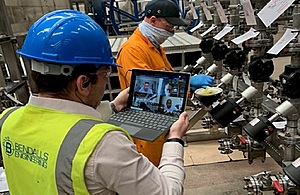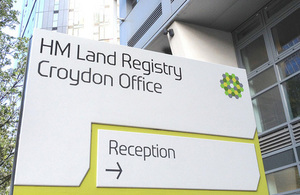30,000 stranded Brits returned to the UK on Government charter flights
The first flight to bring British travellers back to the UK following the outbreak departed Wuhan on January 31, and the 30,000th passenger to return home to the UK landed on a special charter flight from Amritsar, northern India, on Saturday evening.
The Foreign Office has been working around the clock with the airline industry and host governments across the world to help bring back British travellers as part of a major plan announced by Foreign Secretary Dominic Raab on 30 March. Up to £75 million has been made available for special charter flights to priority countries, focused on helping the most vulnerable travellers.
So far, charter flights have returned British nationals to the UK from countries ranging from Bolivia to Bermuda and New Zealand to Nepal.
The countries with the greatest numbers of British travellers returning on Government charter flights include:
- More than 13,500 British nationals from India on 58 flights since 8 April.
- More than 4,000 British nationals on 19 flights from Pakistan since 20 April.
- More than 2,000 British nationals from South Africa from 9-17 April.
- More than 1,500 British nationals from New Zealand since 25 April.
- Around 1,600 British nationals from Bangladesh since 21 April.
Foreign Secretary Dominic Raab said:
On top of the 1.3 million Britons we’ve helped return on commercial flights, we’ve now brought back 30,000 UK travellers from twenty-seven countries.
We remain tirelessly focused on helping the most vulnerable Brits around the world get back home safe and sound.
Since the outbreak in Wuhan, it is also estimated that over 1.3 million people – more than 14 times the capacity of Wembley stadium – have returned to the UK via commercial routes.
Keeping commercial options running has required enormous international effort, with teams in the UK and in our Embassies and Consulates around the world working 24/7 to help overcome this unprecedented challenge.
The majority of these routes were supported by the work of the FCO with airlines and foreign governments to keep vital transit hubs open and ensure that domestic restrictions don’t pose a barrier to getting people home.
For example, we have helped 200,000 passengers return from Spain on commercial routes, as well as 50,000 passengers from Australia, 11,700 from Pakistan, 9,000 from Morocco and around 7,000 from Indonesia. Around 300 British nationals have returned from Kenya on five commercial flights, which would not have been possible without the work of our High Commission in Nairobi.
Case studies:
-
Our efforts have seen a group of volunteers rescued from a remote part of Madagascar, climbers extracted from mountains in Nepal by British Gurkhas, and backpackers reunited with their families after being flown home from South America.
-
In one case, staff in India masterminded a 60-hour, 1,700 mile long trip involving five different drivers and crossing seven states, even receiving a police escort at one point, to make sure a British citizen could take one of our special return flights to the UK.
-
Meanwhile, our team in Saudi Arabia helped an oil worker to return to the UK in time for the birth of his son, despite a strict lockdown, and our Embassy in Sudan helped two doctors make it back to join the NHS frontline.
More than 19,000 British passengers who were aboard 60 cruise ships when the FCO changed travel advice on 17 March have all now disembarked. The FCO helped passengers return home by providing consular assistance, working with local authorities, local military teams and cruise operators to allow ships to dock.
The FCO will continue to send charter flights to bring back vulnerable British nationals who have no other way to return to the UK.
A package of measures to support British nationals who are still waiting to return to the UK has also been put in place. The support package addresses financial issues, healthcare concerns and visa extensions, as well as loans for those who cannot afford flights to the UK where they have exhausted all other options.
ENDS
Background:
- The flight from Amritsar landed at Heathrow Airport at 2020hrs on May 09.
Media enquiries
Email – newsdesk@fco.gov.uk
Further information
Follow the Foreign Office on Twitter @foreignoffice and Facebook
Follow the Foreign Office on Instagram, YouTube and LinkedIn


